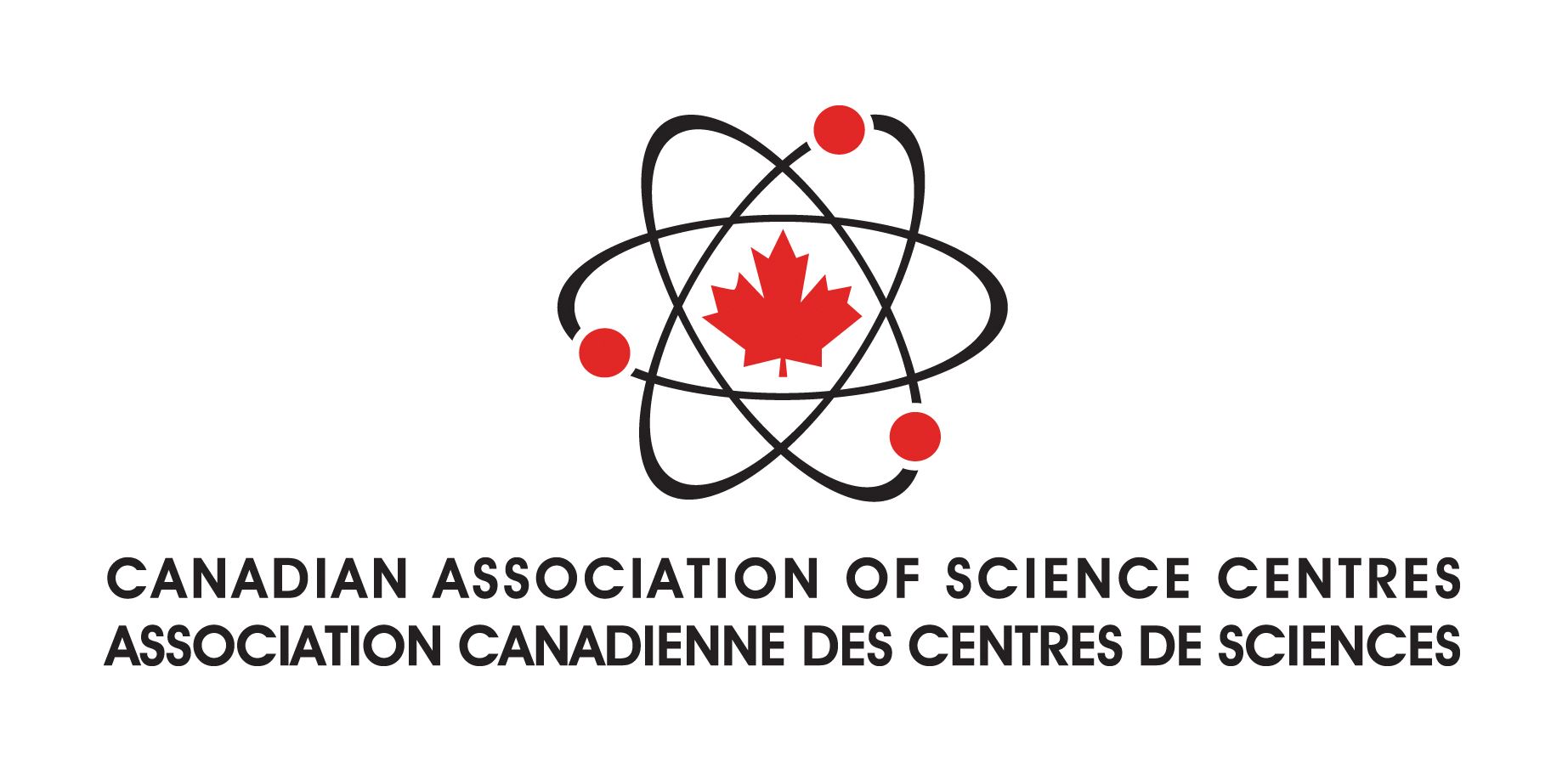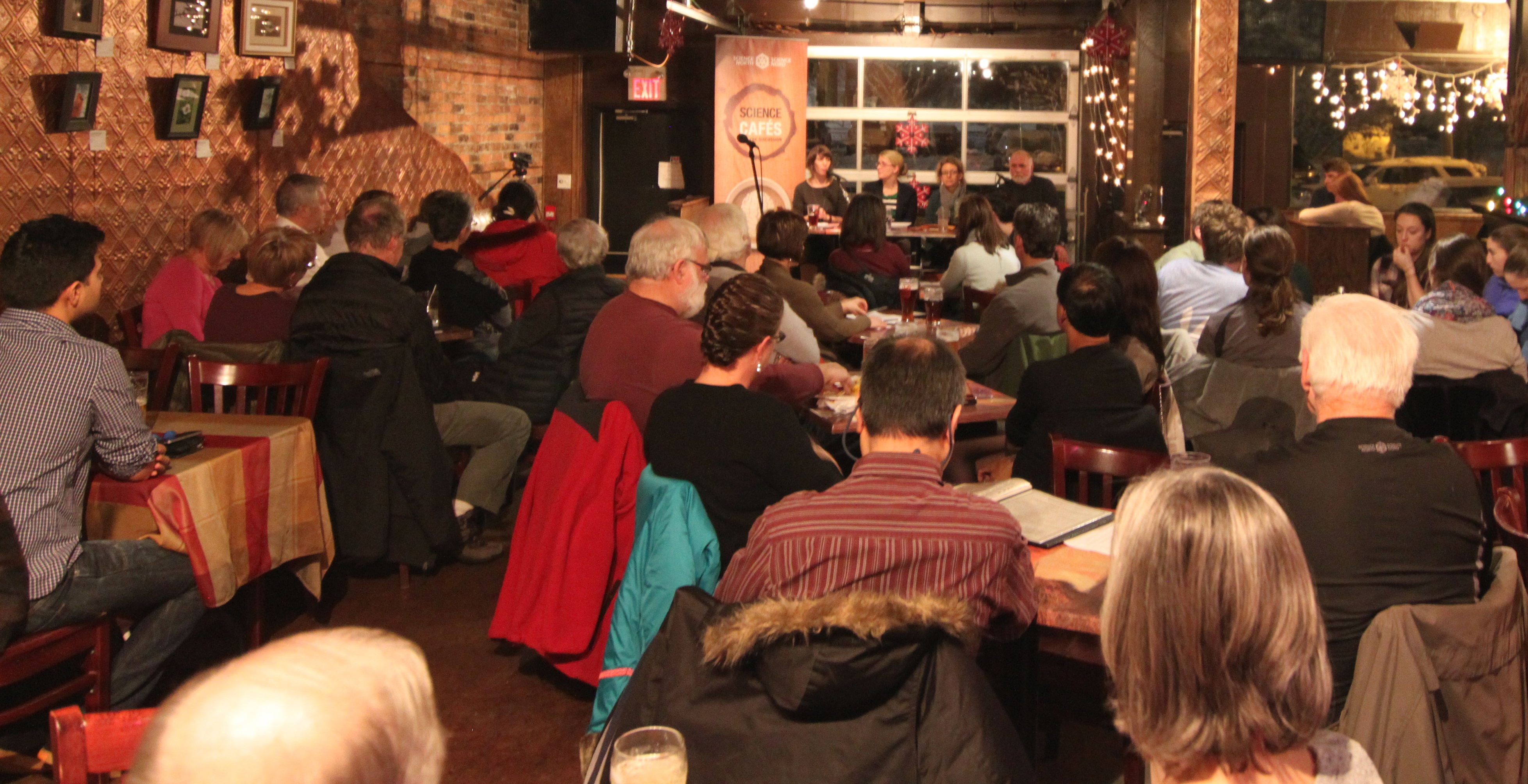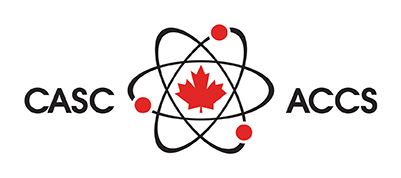SCIENCE IN CANADA'S NORTH The Science in Canada’s North Program Series was
implemented to attract Canadians to
explore the important issues facing Canada’s north.
Through the generous support of The W. Garfield Weston Foundation, the Canadian Association of Science Centres (CASC) coordinated a nation-wide series of programs that connected the public with Arctic science researchers in meaningful discussion and learning. Over four years, 15 participating Science Centre Members hosted 63 events with 128 speakers. A peer-reviewed competitive funding process allowed science centres to apply for project funding to execute these events. The total value of the program to Canadian Science Centres was a $300,000 contribution from the W. Garfield Weston Foundation.
The W. Garfield Weston Foundation is a private Canadian family foundation, established in the 1950’s by Willard Garfield Weston and his wife Reta. In 1924 Garfield inherited his father’s company and during his life established bakeries and other successful enterprises throughout Canada and in many parts of the world. Today, these businesses include the George Weston Limited and Loblaw Companies Limited, companies in food retailing, processing and distribution. The founders believed that as the funds are generated through the hard work and success of these Canadian companies, grants should be given in Canada for the benefit of Canadians. For three generations, The W. Garfield Weston Foundation has maintained a family tradition of supporting charitable organizations across Canada. Today the Foundation directs the majority of its funds to projects in the field of land conservation, education, and science in Canada’s North. In addition, it provides funds to further Canada’s research in neuroscience.
Science in Canada's North 2012 Building on the success of existing partnerships of Science Centre’s across Canada with previous Café Scientifique programs, The W. Garfield Weston Foundation supported CASC in developing up to 10 new Café’s across Canada in 2012. The events were very successful in connecting youth with role models in arctic and northern science, they strengthened the capacity of science centre’s to execute the Café’s and provided a platform for northern science researchers to better communicate their work with the general public. The following final report summarizes the project. Café Scientifique Series
“This was a fabulous lecture - speakers were all remarkable & knowledgeable about topics that were raised by the audience. The photos were especially compelling in allowing the audience to get a sense of the challenges & joys of arctic research.” Science World BC Café Scientifique Attendee – November 13, 2013 Science in Canada's North 2013 Café Scientifique Series
Science in Canada's North 2014 In 2014, the program expanded to offer different models of engagement such as youth symposia, lecturers accompanying films, exhibition events, etc., all of which allow greater geographic and demographic reach for the program. One of the most successful programs in terms of attendance was a partnership between the Manitoba Children’s Museum and the London Children’s Museum, which shared resources and partnered with Parks Canada, the Assiniboine Park Zoo, Polar Bears International and the Prairie Wildlife Rehabilitation Centre to create a slate of special events targeted to families and school groups, reaching close to 1,500 people directly through this program. Combined, recipients of the program hosted nine events across Canada, with an estimated attendance of 2,173 people representing all age groups, leveraged an additional $14,000 in new funds and created partnerships with 21 new partners. Café Scientifique & Programs Series
Science in Canada's North 2015 While Cafe Scientifiques continued to be the programmatic format of choice for many members, others explored different models of engagement. The Vancouver Aquarium Marine Science Centre created the Online Arctic Marine Life Course to bring knowledge of the Arctic to Canadians. Presentations were held at science centres in four Canadian cities—Vancouver, Calgary, Ottawa and Halifax—and were streamed live on the internet. The course covers 12 topics that are pre-recorded 30-minute lectures: an introduction to cetaceans, belugas, narwhals, benthic ecology, fishes and invertebrates, Greenland sharks, pinnipeds, seabirds, polar bears, ocean currents, plankton and pollutants. Science North hosted Science Speaker Series events that featured topics associated to the traveling exhibit Ice Age that was being showcased at the science centre at the time. Dr. Duane Froese presented his recent research that outlined how the populations respond to climate over the last several hundred thousand years, and the events that ultimately led to extinction. Science Adventures, Yukon Research Centre – Yukon College held the only event north of 60 for the Science in Canada’s North Scientifique Series. Scientists Visiting Classrooms Networking Event directly connected the local scientist community with the local education community. They had a total of 12 scientists (from a diverse number of careers and sectors) and 10 teachers (elementary and high school, representing over eight local schools). To celebrate Polar Science Week, the London Children’s Museum hosted two events that informed children about climate change and community-researcher relationships in the Canadian Arctic. Both events were based around hands-on interactions through the lens of heritage management and archaeology. Institute for Elementary Teachers at the Perimeter Institute was a workshop organized by Canada Science and Technology Museums Corporation that provided educators with new and innovative ways of enriching their science lessons by offering them activity ideas, deeper knowledge in teachable subjects as well as opportunities to make cross-curricular links. The subject of Canada’s north was ideal to link both the science and social science curriculum at the elementary level. |
| Canadian Association of Science Centres #1203-130 Albert St. Ottawa, ON. K1P 5G4 info@casc-accs.com |
The CASC office is situated in Robinson Huron Treaty territory and the traditional territory of the Atikameksheng Anishnawbek. We pay respect to their traditions, ways of knowing and acknowledge their many contributions to the innovations in Science, Technology, Engineering and Mathematics. Clearly and overtly this gratitude must be demonstrated in our collective commitment to truth and reconciliation, by working to transform existing relationships, with open dialogue, mutual understanding and respectful collaborations
©2022 Canadian Association of Science Centres |


